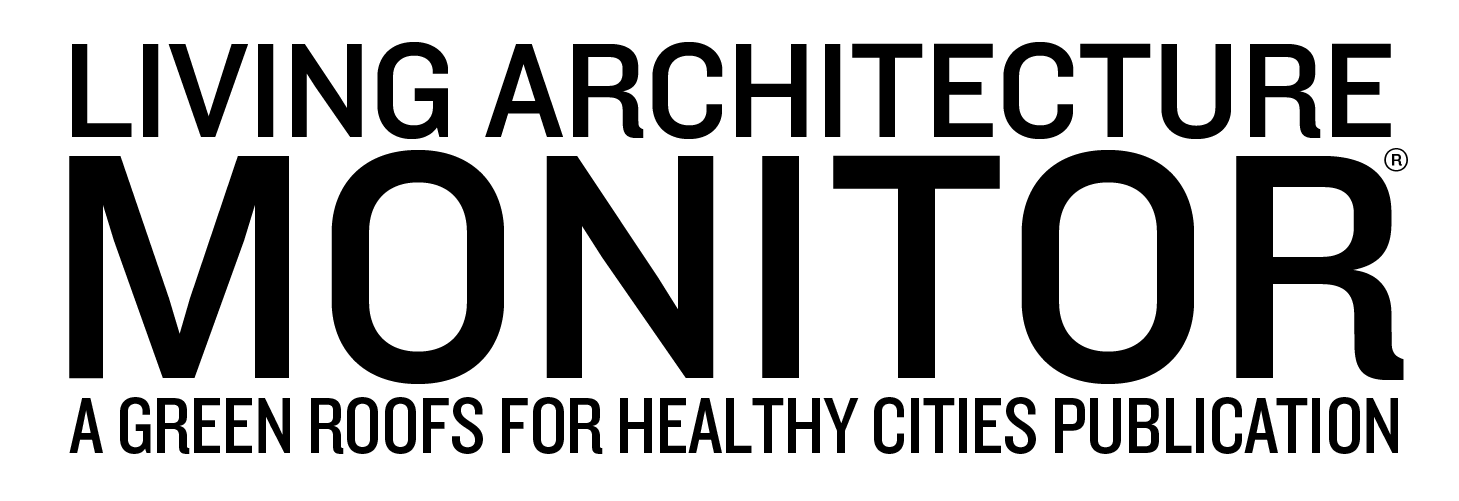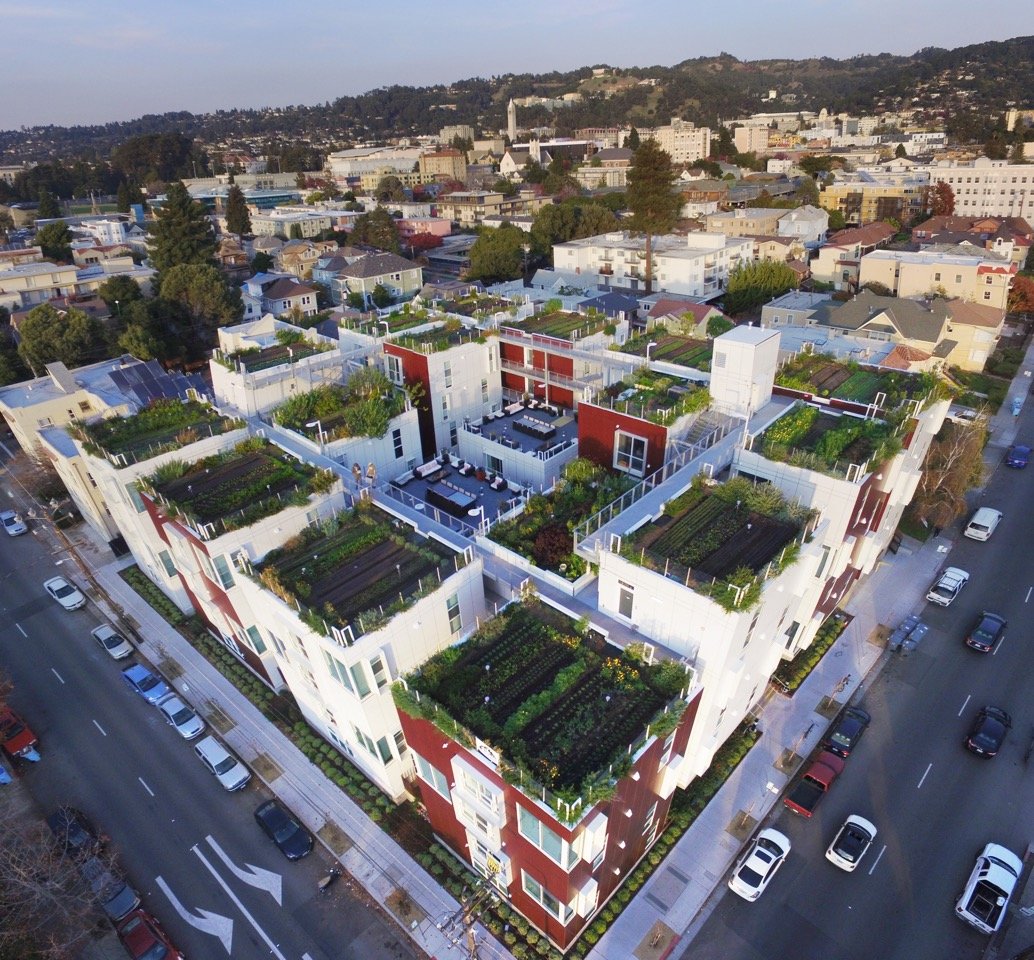Cultivating Knowledge and Connection: Urban Agriculture and Ecological Literacy
Advertisement
Introduction
As urban agriculture has grown in popularity, its myriad benefits are now well documented. Beyond the procurement of local food for urban populations, urban agriculture also provides green spaces that facilitate individual connections to nature, enhance human wellbeing and strengthen community cohesion. Urban agriculture also provides new opportunities for city folk to take a more active role in the system that feeds them, whether through growing their own food, purchasing locally grown food, or simply starting to learn about the process itself.
Marigolds and a bumblebee, Urban Farm at TMU
Developing one’s ecological literacy through urban agriculture activities may provide rich experiences, have a positive impact on the daily life of those who engage in them, and offer the potential for transformation of one’s perspectives and attitudes. I have personally experienced this transformation through my employment in urban agriculture at the Toronto Metropolitan University (TMU), and thus want to explore this question:
Can engaging with urban food production contribute to shifting our individual and collective worldview, and make our urban lives more sustainable and fulfilling?
Alienation From Nature
“One of the greatest causes of the ecological crisis is the state of personal alienation from nature in which many people live.” This was articulated by Robert Pyle back in 1978, and almost 50 years later, we continue to bear the consequences of this alienation, as more than half of the earth’s population inhabits urban areas. The term “Nature Deficit Disorder”, coined in 2005 by author Richard Louv, illustrates this modern affliction and points to the absence of nature education and interaction in children specifically. The proliferation of electronic communications, poor urban planning and disappearing open spaces are identified as some of the key drivers behind this disconnect. (Louv, 2005). There is evidence that less time spent in and amongst the natural world not only results in, but exacerbates, this alienation. In one study, researchers demonstrated that participants who described nature in experiential terms (drawing from their experiences participating in outdoor activities, such as community gardening) feel more connected to nature than those who described nature in descriptive terms. (Hatty et al., 2022).
Mayer & Frantz (2004) state that “if people feel connected to nature, then they will be less likely to harm it, for harming it, would in essence be harming their very self”. This lack of emotional involvement within an anthropocentric society has normalized indifference and harmful behaviours. Anthropocentrism is defined as human-centered thinking. This viewpoint holds that human beings are separate from nature, superior to nonhuman species, and are the most significant entities in the world. In modern society, this belief has become pervasive and dangerous. Collective perception of nature as a means to an end, as resources to be extracted, and as a realm outside of ourselves to be dominated, ultimately leads to a lack of consideration for the natural world and resulting environmental degradation. This can be a difficult worldview to address, because of its subtlety and the fact that it is often not consciously asserted by individuals, but rather it is internalized and accepted as the norm in our current society. People may consider themselves environmentally conscious, but still be willing to accept environmental destruction as a “necessary evil” in the pursuit of human interests (Gribben & Fagan, 2016).
Advertisement
Reconnecting and Ecological Literacy
According to Duailibi (2006), “survival of humankind will depend on our ecological literacy…on our skills to apprehend knowledge from nature, to understand the basic principles of ecology, and to live accordingly”. By positioning our human selves as being of nature, rather than viewing it as an entity existing separate from us, by learning about and connecting with nature, we may just have a chance to save ourselves from demise.
A student bunches carrots at Toronto Metropolitan University’s rooftop farm. Photo: TMU
The introduction of the term ecological literacy dates back to a speech by Paul Risser in 1986, in which he highlighted ecologist’s responsibility to share important ecological facts, for example, that “everything is connected to everything”. The concept of ecological literacy, or ecoliteracy, is sometimes contentious for its breadth of meaning and applications, and has been extensively discussed and evaluated. Nichol (2010) identifies knowledge of natural processes and systems, an emotional bond with the natural world, a sense of self-efficacy, and adaptability, amongst others, as domains for essential ecoliteracy. Other components identified by scholars include environmental sensitivity, ecological and socio-political knowledge, cognitive skills and environmentally responsible behaviors (McBride, 2013). Desmarais (2024) notes that some “emphasize the sense of wonder and observation needed to truly understand social-ecological systems” and others “stress the notions of care and respect for others, rather than specific abilities”. This sentiment is echoed by author Richard Louv (2005) who writes, “environmentalists in the future will carry nature in their briefcases, not in their hearts”, urging environmental education to emphasize emotional involvement beyond the pursuit of academic and professional knowledge. It seems that ecological literacy relies on a combination of academic, experiential, and emotional knowledge - the ability to not only comprehend, but “participate meaningfully” in ecosystems.
Against the backdrop of urban sprawl and climate catastrophe, it becomes imperative for humans to become aware of our delicate role in ecosystems, the relationships within it, and the effect our actions have on the environment. As it spreads, I am suggesting that perhaps urban agriculture is a practice that presents a strong opportunity for cultivating greater ecological literacy within society.
The Potential of Urban Agriculture
Urban agriculture can promote ecological literacy by demonstrating principles and practices of agroecology, providing real world applications of concepts and practices, such as:
soil health management,
biodiversity promotion,
“farm to table”,
input reduction and,
closed loop systems.
These subjects help illustrate the synergies and vital ecological interactions between different parts of the agroecosystem - between plants, soil microbes, and all other living beings and phenomena.
Spending intentional time immersed in and connecting with nature to any degree can contribute to furthering one’s ecological literacy. However, with access to nature and green spaces being limited in cities, and given our ever increasing alienation from the natural world, urban agriculture provides not only the physical spaces to fill the gap, but a functional context for participatory education and the development of tangible skills and awareness. At the most basic level, city dwellers can feel directly connected and involved to their food system by learning about how their food gets to them. What is involved in the process, what is sustainable and what isn’t. Going further, they can consume food that was grown in their neighborhood. Even further, they can participate in the process itself, and become actively invested by placing themselves at the core of that very system. One can engage in multisensory ways - new information is integrated not only through cognition, but through observation, touch, smell, and taste. Knowledge beyond theory includes the smell of a flower, the song of a bird, the crunch of a carrot.
Advertisement
Student apprentices and farm staff amongst the plants in downtown Toronto’s Urban Farm at TMU. Photo: TMU
The Urban Farm at TMU
The TMU Urban Farm aims to provide ample opportunities for students, faculty, staff and the community at large to connect to their environment, their food system, to develop ecological literacy, and ultimately imagine a better future. The degree to which participants are involved varies - whether spending an afternoon amongst plants, attending weekly volunteer sessions with their hands in the soil, cooking daily meals with urban farm produce, or enrolling in a months-long course.
The Urban Farm’s offerings include the Field Apprenticeship program, a 14-week hands-on paid position for students, who participate in weekly classroom training and field demonstrations in order to deepen their knowledge and understanding of urban farming, ecology and food justice. These teachings include topics related to ecological farming and the principles and practice of Black and Indigenous Food Sovereignty initiatives. For a more casual experience, the Urban Farm hosts workshops on various topics and themes around urban agriculture, small scale growing, and sustainability. On April 9, our “First Signs of Spring” field walk offers participants an introduction to the concept of phenology, a chance to observe ecological relationships and connect to seasonal rhythms. Also at TMU, the Chang School of Continuing Education’s Urban Agriculture Certificate is a unique program providing accreditation in urban food production systems and development of green urban infrastructure, equipping professionals to make our cities more sustainable and urban food systems more resilient. Community members can also visit the rooftop farm every Wednesday throughout the summer months.
Conclusion
Alongside many other diverse urban agriculture initiatives in the city of Toronto, The Urban Farm at TMU hopes to fulfill its potential to provide people with hopeful new perspectives, to cultivate greater ecological literacy, and a sense of agency and empathy. We hope that these unique spaces can help and empower us to overcome our alienation from nature, connect to ecosystems, our food, and each other.
Advertisement
About the Author:
Ines Lacarne has been overseeing field activities and leading crews of students and volunteers on the rooftop farm at TMU for the past five years. She began her career in ecological market gardening in British Columbia eight years ago, and has training in permaculture, living soils, and nature connection.
More Information
Please visit our website for more information about how to get involved in the various urban agriculture programs offered at TMU.
Visit the farm website here.
References
Desmarais, R. (2024). Ecological Literacy: definition, early articulations, frameworks and empirical research. In Journal of Sustainability Education: Vol. Vol. 29. https://www.susted.com/wordpress/wp-content/uploads/2024/04/Desmarais-JSE-March-2024-General-Issue-PDF.pdf
Duailibi, M. (2006.). Ecological literacy: What are we talking about?. https://eric.ed.gov/?id=EJ813687
Ecology of food systems : Dictionary of Agroecology. (n.d.). https://dicoagroecologie.fr/en/dictionnaire/ecology-of-food-systems/
Gribben, J., & Fagan. (2016). Anthropocentric attitudes in modern society. https://rucore.libraries.rutgers.edu/rutgers-lib/51505/PDF/1/play/
Hatty, M., Goodwin, D., Smith, L., & Mavondo, F. (2022). Speaking of nature: Relationships between how people think about, connect with, and act to protect nature. Ecology and Society, 27(3). https://doi.org/10.5751/es-13369-270317
Louv, Richard (2005). Last Child in the Woods (1st ed.). Algonquin Books of Chapel Hill.
Mayer, F. & Frantz, Cynthia. (2004). The Connectedness to Nature Scale: A Measure of Individuals’ Feeling in Community with Nature. Journal of Environmental Psychology. 24. 503-515. 10.1016/j.jenvp.2004.10.001.
McBride, B. B., Brewer, C. A., Berkowitz, A. R., & Borrie, W. T. (2013). Environmental literacy, ecological literacy, ecoliteracy: What do we mean and how did we get here? Ecosphere, 4(5), 1–20. https://doi.org/10.1890/es13-00075.







